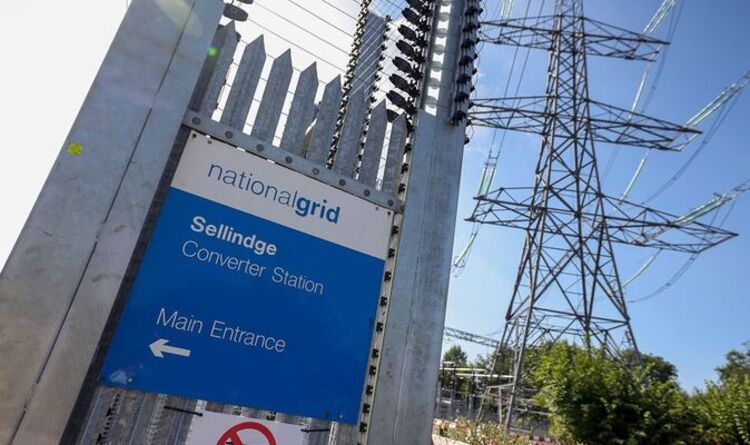Russia: Figures show flow of gas into EU at highest this year
We use your sign-up to provide content in ways you’ve consented to and to improve our understanding of you. This may include adverts from us and 3rd parties based on our understanding. You can unsubscribe at any time. More info
In a deal worth £4.2 billion, National Grid will sell 60 percent of its UK gas transmission and metering business to the consortium, with National Grid receiving £2.2 billion from the sale and an additional £2 billion from debt financing at completion. According to the firm the sale will form part of its “strategic pivot towards electricity”. National Grid Chief Executive John Pettigrew said: “This transaction further enhances our role in delivering the UK’s energy transition, pivots our portfolio towards electricity, whilst ensuring the security of the energy supply for the country. Alongside our plans to invest up to £35 billion in energy infrastructure over the next five years, the series of transactions announced last March will strengthen our long-term growth prospects, and drive long-term value for shareholders.”
The move has however raised eyebrows due to the makeup of the consortium, which consists of Australian asset manager Macquarie Asset Management and Canadian institutional investor British Columbia Investment Management Corporation.
Macquarie, which has been nicknamed the vampire kangaroo, previously owned Thames Water which it was found to have left with an extra £2 billion of debt after it exited in 2017.
According to a BBC investigation at the time, £2 billion was borrowed by Thames Water in 2007 and 2010 but was used instead for the benefit of Macquarie and its investors, although the bank insisted its ownership had made Thames Water financially stronger.
Shortly after Macquarie sold its final stake, Thames Water was fined a record amount for pollution between 2012 and 2014.


Reacting to the news of its deal with National Grid, former Business Secretary Vince Cable warned that Britain’s gas networks would need “longer-term investment cycles than (Macquarie is) used to”.
Speaking to The Times he also said the company’s management of Thames Water raised “questions over its suitability to run a crucial utility.”
Gary Carter, National Officer at trade union GMB, said: “Flogging more of the national silver to a foreign company doesn’t immediately look like a good way to improve our energy security.
“We will be meet with the new owners as a matter of urgency to ensure they honour the commitments given by National Grid to pay, pensions, and terms and conditions.”

Macquarie meanwhile has insisted that the deal will help with the UK’s transition to net zero.
In a statement the firm said: “The Consortium invests on behalf of long-term institutional investors including pension and insurance funds, and intends to remain invested in the business over multiple regulatory periods.”
In particular it pledged to support and develop projects aimed at maximising opportunities presented by hydrogen for the UK.
Martin Bradley, Head of Macquarie’s Real Assets team in EMEA, said: “Backed by our significant investment, the transmission system will play a leading role in making the network ready for this transition.
DON’T MISS:
Ukraine conflict batters confidence in German economy [SPOTLIGHT]
EU plans to phase out Russian gas likely to fail [ANALYSIS]
Russian companies paralysed by sanctions [REVEAL]

“In doing so it will support the expansion of hydrogen’s role in the energy mix to deliver a competitive edge to the UK and its industry, while working closely with the Government and Ofgem to maintain security of supply.”
Once the deal is complete National Grid will retain a 40 percent stake in gas operations via a new holding company called GasT TopCo.
However it has also entered an option agreement with the consortium which leaves the door open for the potential sale of this remaining stake.
Source: Read Full Article
